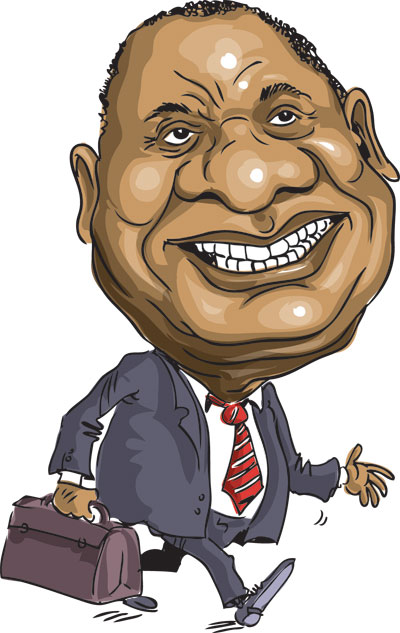Reply To:
Name - Reply Comment
 he South African Deputy President Cyril Ramaphosa has arrived in Sri Lanka to assist the country to find a solution to the conflict which led to a bloody thirty-year-long war which ended in 2009. He is not visiting the country on his own or in other words he is not going to impose any solution on Sri Lanka because it was the Sri Lankan President, who sought South Africa’s assistance when he met South African President Jacob Zuma on the sidelines of the Commonwealth Heads of Government Meeting (CHOGM) held in Colombo in November last year. Hence no one will be able to blame South Africa or Ramaphosa as happened with regard to India in the 1980s.
he South African Deputy President Cyril Ramaphosa has arrived in Sri Lanka to assist the country to find a solution to the conflict which led to a bloody thirty-year-long war which ended in 2009. He is not visiting the country on his own or in other words he is not going to impose any solution on Sri Lanka because it was the Sri Lankan President, who sought South Africa’s assistance when he met South African President Jacob Zuma on the sidelines of the Commonwealth Heads of Government Meeting (CHOGM) held in Colombo in November last year. Hence no one will be able to blame South Africa or Ramaphosa as happened with regard to India in the 1980s.
No doubt, the National Freedom Front (NFF) led by Minister Wimal Weerawansa will not leave the Government in protest over South African intervention despite its 12-point proposal containing reservations against foreign intervention or mediation including that of South Africa. His protests and reservations are similar to those of  leaders of leftist parties who wake up every now and then to complain against the Executive Presidency after having helped the passage of the 18th Amendment to the Constitution in Parliament.
leaders of leftist parties who wake up every now and then to complain against the Executive Presidency after having helped the passage of the 18th Amendment to the Constitution in Parliament.
President Mahinda Rajapaksa had requested South African assistance in respect of the national question after having stated on many an occasion that there should only be a home-grown solution to it. And the Government has been repeatedly stressing that the only way of finding a lasting solution to the national question was through the Parliamentary Select Committee (PSC) appointed by the Speaker in June last year. The role of the South African envoy therefore has to be looked at within these parameters.
If South Africa’s assistance is not to clash with the home-grown solution concept, Ramaphosa will clearly have to be a facilitator who will only bring the stakeholders to the problem, mainly the Government, the TNA and the SLMC to a common forum and make sure that the mood of the negotiations will remain conciliatory and accommodative throughout until common ground is reached.
The PSC’s possibility of becoming the common forum where the stakeholders put their heads together seems to be rather remote since the opposition parties had opted to keep away from it and the accommodation of the South African envoy into it would be problematic. If the Government insists on the PSC process it will have to find ways to accommodate a foreigner in it.
The most important matter to be reckoned with is the acceptance of the fact that a solution is needed and either one party or the relevant parties concerned would have to compromise on major issues. In other words either the ruling UPFA and its allies would have to be prepared to accept the concept of power devolution while the TNA would have to have the courage to explore a political solution not based on the concept of power devolution. These would be the farthest extremes either party would have to travel to in search of lasting peace. In short both main parties would have to be open-minded and should have the courage to ward off pressure groups that are waiting to brand anyone not amenable to their way of thinking as “traitors”.
This is the bitter lesson the country has learnt through so many negotiating processes with or without foreign mediation with regard to the national question. Unless the parties are prepared to take this reality into account, the best course of action will be to leave Ramaphosa alone, without wasting his time and energy.